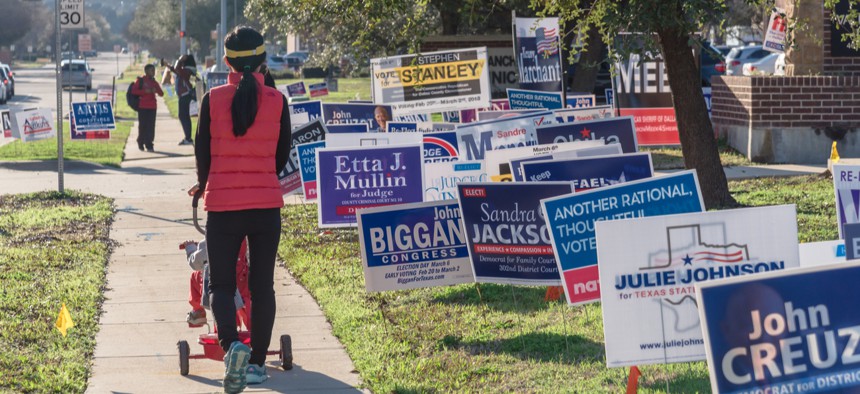
Trong Nguyen/Shutterstock.com
Complying with the Hatch Act Isn’t That Difficult
Here’s what federal employees need to know.
The Hatch Act restricts federal employees from taking part in political activity, defined as any activity directed at the success or failure of a political party, partisan political group, or candidate in a partisan race. Employees who must comply with the Hatch Act include any individual (other than the President and the Vice President) employed or holding office in "an executive agency other than the Government Accountability Office"; or in "a position within the competitive service which is not in an executive agency."
For most federal employees, who fall into the “less restricted” class under the Hatch Act, the law’s prohibitions have long been limited to these narrow rules:
- Do not engage in political activity while on duty or in the workplace.
- Do not engage in political activity in an official capacity at any time.
- Do not solicit or receive political contributions at any time.
For this group of federal employees, the list of permissible activities while not on duty is fairly long, and includes broad categories such as:
- May contribute money to political campaigns, parties, or groups
- May attend and be active at political rallies and meetings
- May make campaign speeches for candidates in partisan elections
- May volunteer to work on a partisan political campaign
- May express opinions about candidates and issues, including on social media
The Hatch Act specifies “further” restrictions on Presidential Appointees confirmed by the Senate; Senior Executive Service members; intelligence community officials; and most law enforcement officers. In addition to the prohibitions that apply to other federal employees, members of this further restricted group are also prohibited from, for example, taking an active part in any political management or partisan political campaign, or “sharing,” “liking,” or “retweeting” any social media post directly from a campaign or political party or requesting contributions for a candidate or political party.
The purpose of restricting political activities is to prevent bias within government agencies and to protect employees from coercion or preferential treatment based on political affiliation and involvement. Even though we are now living in an era of perpetual presidential campaign season, these rules are pretty limited in scope, and the line between speech constituting a Hatch Act violation and speech protected by the First Amendment has generally been pretty clear. While the Hatch Act has been around since 1939, it has been repeatedly amended in favor of allowing speech and restricting its reach rather than free speech. The Supreme Court established in Pickering v. Board of Education that “citizens do not surrender their First Amendment rights by accepting public employment.” In Lane v. Franks, the Court explained why:
There is considerable value . . . in encouraging, rather than inhibiting, speech by public employees. For “[g]overnment employees are often in the best position to know what ails the agencies for which they work.” . . . “The interest at stake is as much the public's interest in receiving informed opinion as it is the employee's own right to disseminate it.”
Yet because "the State has interests as an employer in regulating the speech of its employees that differ significantly from those it possesses in connection with regulation of the speech of the citizenry in general," the Supreme Court has allowed some limits, such as the Hatch Act, on the free speech rights of government employees.
In 2012, Congress passed the Hatch Act Modernization Act which modified the penalty structure for violations of the law. Under the modified penalty structure, an employee who violates the Hatch Act is subject to a range of disciplinary actions including removal from federal service, reduction in grade, debarment from federal employment for a period not to exceed 5 years, suspension, reprimand, or a civil penalty. Federal employees facing discipline for Hatch Act violations are still entitled to due process and legal representation, like those facing any charge of misconduct.
Debra D’Agostino is a founding partner of the Federal Practice Group. She has nearly 20 years of experience in employment law and has represented federal employees in matters before the EEOC, MSPB, the U.S. Court of Appeals for the Federal and D.C. and 4th Circuits and the U.S. Court of Federal Claims.
Image via Trong Nguyen/Shutterstock.com.






